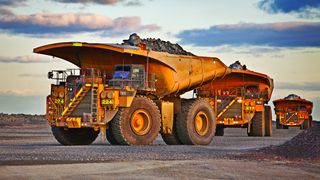While China is tightening its coercive campaign against Australia, now targeting the coal industry, its ambassador to the United Nations, Zhang Jun, last week led a protest of 26 nations against economic coercion by the United States.
‘We continue to witness the application of unilateral coercive measures, which are contrary to the purpose and principles of the UN Charter and international law, multilateralism and the basic norms of international relations’, he told the United Nations human rights committee. He spoke on behalf of a group of nations including the major targets of US sanctions: North Korea, Cuba, Venezuela, Iran, Palestine, Russia, Syria and Zimbabwe.
Zhang drew attention to the Non-Aligned Movement’s condemnation of unilateral coercive measures and urged their elimination to support the effectiveness of national responses to the Covid-19 pandemic.
The contradiction of calling out US economic coercion while implementing its own reflects China’s persistent refusal to acknowledge that it ever deploys its economic power over other nations for political purposes.
The contradiction of calling out US economic coercion while implementing its own reflects China’s persistent refusal to acknowledge that it ever deploys its economic power over other nations for political purposes.
Even when it launched a concerted campaign against South Korea over its 2017 decision to host a US anti-missile system, China declared before the World Trade Organization that it had done nothing. The campaign, which included a ban on tour groups, a boycott of Hyundai and the forced closure of 70% of the Korean-owned Lotte supermarkets in China, was ultimately relaxed after South Korea negotiated a military deal to ‘normalise’ relations.
As I explain in my new ASPI report, Economic coercion: sanctions and boycotts—preferred weapons of war, released today, both the US and China have intensified their use of economic coercion over the past three years.
The two have radically different methods. The US structure of economic sanctions is highly formalised. A Treasury department, the Office of Foreign Assets Control, maintain lists of sanctioned organisations and individuals running to more than a thousand pages and imposing fearsome penalties for infractions.
China’s system is informal, relying on boycotts and regulatory interventions to deny access to the vast Chinese market. These practices have a long history. The first academic study of Chinese coercion was conducted in 1930, tracing successive boycotts of products from the US, the UK and Japan over the previous 25 years.
By denying that its actions are officially orchestrated, China both escapes accountability and encourages others to second-guess its wishes to avoid becoming a target of its retribution.
By denying that its actions are officially orchestrated, China both escapes accountability and encourages others to second-guess its wishes to avoid becoming a target of its retribution.
Since the Australian government displeased the Chinese government in April this year by calling for an inquiry into the origins of the Covid-19 crisis independent of the World Health Organization, prohibitive tariffs have been placed on Australian barley exports, beef imports from several of the largest Australian processors have been suspended for alleged health infractions, an anti-dumping investigation has been launched into Australian wine, and Chinese government advisories have warned students and tourists against travelling to Australia for safety reasons. Coal industry reports say the order went out last week to Chinese steel mills and ports to halt Australian coal purchases.
While Australia is unlikely to be the target of US sanctions, Australian businesses are at risk of suffering collateral damage. The US asserts extra-territorial power with its sanctions, saying someone may deal with a sanctioned entity or with the United States, but not both.
An Australian company that inadvertently sold goods to Iran, for example, could face prosecution in the US with the risk of heavy fines and a ban on transacting in US dollars. The largest fine for breaching US sanctions was US$8.8 billion imposed on France’s largest bank, PNB Paribas, in 2014.
The Trump administration has seen economic coercion as a much cheaper alternative to military intervention. Ahead of the 2016 election, Donald Trump declared, ‘War and aggression will not be my first instinct.’ Rather, he said, ‘financial leverage and sanctions can be very persuasive—but we need to use them selectively and with total determination’. Trump doubled the rate at which sanctions are imposed, while the level of penalty also increased.
Ahead of the 2016 election, Donald Trump declared, ‘War and aggression will not be my first instinct.’ Rather, he said, ‘financial leverage and sanctions can be very persuasive—but we need to use them selectively and with total determination’.
The spread of countries affected by US sanctions has also widened. The US has even imposed economic sanctions on Europe, barring any firm that participates in a gas pipeline from Russia to Germany from any operations in the United States.
The increasing use of economic coercion by China has paralleled its growing economic power. It has been particularly marked this year as China deals both with attempts to allocate responsibility for the Covid-19 pandemic and with the emerging national security concerns in many nations about the risks of Chinese investment. Boycotts and other trade actions have been threatened, and in some cases implemented, against the UK, Germany, Canada, the Netherlands, the Czech Republic, Sweden and Australia.
Economic coercion has been rising as the institutional underpinning of international trade has become weaker. The WTO has lost its ability to adjudicate disputes, since its appeal panel no longer has a minimum quorum of judges after the US vetoed all appointments. Countries are imposing tariffs, trade quotas and anti-dumping penalties at a much greater rate, often outside WTO guidelines. In the face of rising trade barriers, the G20 has stopped calling on its members to resist protectionism.
It is a global trade environment that makes it easier for countries to use trade as a weapon. As a relatively small country, Australia’s strong interest is in preserving a global trade environment under the governance of the WTO. It will eventually be a loser in a world where trade relations are governed by the exercise of economic power.
While Australia needs to show resolve in the face of Chinese coercion, it should also strive to halt and if possible reverse the erosion of the global trade institutions, by working with allies and regional partners on reform.






